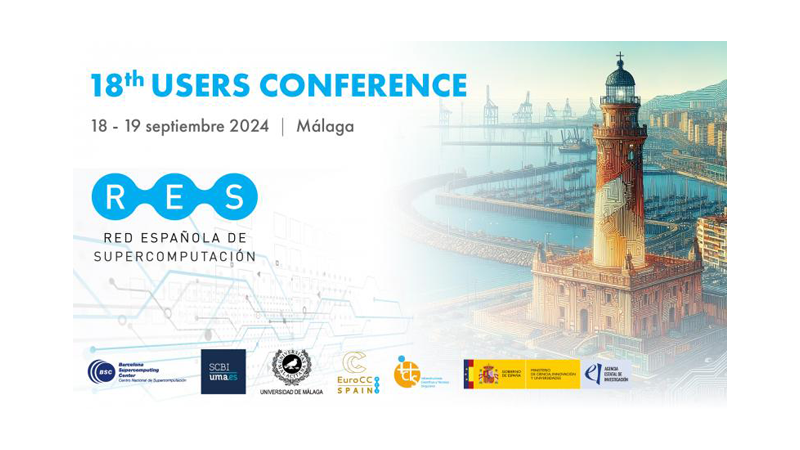18th RES Users' Conference
18th RES Users' Conference
Don't miss any update on the event following us in X and LinkedIn!
Event overview and register
The Spanish Supercomputing Network (RES) organizes the Annual RES User Conference with the purpose of providing updates on RES developments and offering relevant information about access to its resources and the European HPC ecosystem. This event serves as a meeting point for users, support technicians, and the user committee.
- Digital Twins: models, algorithms and computation
- Large Language Models (LLM) and Artificial Intelligence
- Chips: RISC-V based processors development
- Algorithms for the exascale
The RES-HPC award for a career in research, development, and/or dissemination of supercomputing has been granted to Professor José Manuel González Vida from the University of Málaga. His contribution to tsunami simulation is particularly noteworthy.

REGISTRATION IS NOW CLOSED
Sponsors


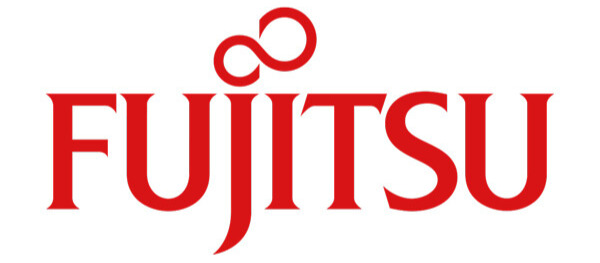
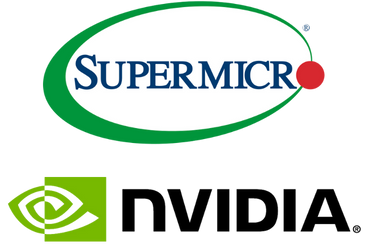
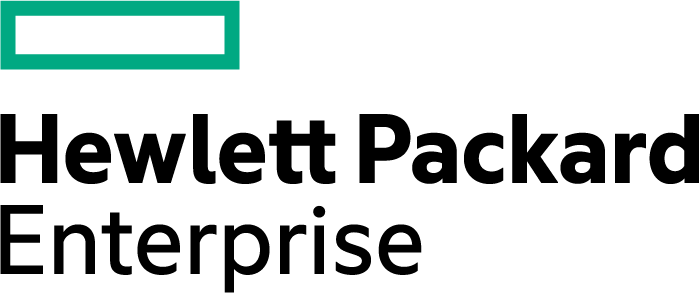
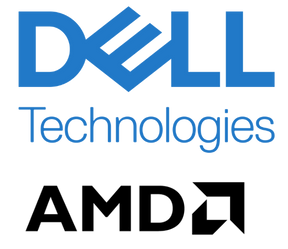
Venue
The venue of the event is the School of Industrial Engineering of the University of Málaga.
Agenda
| Tuesday 17th September 2024 - Faculty of Computer Sciences | |
| 12:00 | Talk with students: Mateo Valero — Barcelona Supercomputing Center's director Mario Nemirovsky — INNOVA IRV's CEO |
| 15:00 | Welcome |
| 15:15 | Taller técnico: "Managing a Federated HPC Data Environment in the Advent of AI" por Sven Breuner (Field CTO International of VAST Data) Storage in HPC lacks innovation and has gotten way too complicated and incovenient over the last years - for the system administrators that have to manage a whole zoo of different systems and for the researchers that should focus in their research instead of data management, access patterns an protocols. Time for a change before it gets even worse over the next years! |
| 16:45 | COFFEE BREAK |
| 17:00 | Taller técnico: "Building a RAG Agent" por Frederic Pariente (NVIDIA) Retrieval Augmented Generation (RAG) is an architecture used to optimize the output of a Large Language Model (LLM) with dynamic, domain specific data without the need of retraining the AI model. This workshop will jumpstart you on your LLM and RAG journey. |
| Wednesday 18th September 2024 - Faculty of Industrial Engineering | |
| 9:00 | Registration Open - 1st day |
| 9:30 | Inaugural session |
| 10:00 | Thematic Panel: Digital Twins Moderator: José Manuel Claver — Universitat de València Participants: Sergio Chiva — Universitat Jaume I Miguel Castrillo — Barcelona Supercomputing Center Mariano Vázquez — Barcelona Supercomputing Center Roser Sánchez-Todo — Neuroelectrics |
| 11:30 | COFFEE BREAK & POSTER EXHIBITION |
| 12:00 | Thematic Panel: Algorithms for Exascale. Inno4scale Moderator: Guy Lonsdale — Scapos AG Participants: Siegfreid Benkner — University of Vienna José Román Moltó — Universitat Politècnica de València Niclas Jansson — KTH Royal Institute of Technology Guilherme Vaz — BlueOASIS |
| 13:30 | DINNING BREAK |
| 15:00 | Thematic Panel: Chips - RISC-V based processor development Moderator: Óscar Plata — Universidad de Málaga Participants: Francesc Guim — OPENCHIP & SOFTWARE TECHNOLOGIES Osman Unsal — Barcelona Supercomputing Center Gabriel Caffarena — Open RAN Málaga Lab, Vodafone Innovation Campus Mario Nemirovsky — INNOVA IRV |
| 16:30 | END OF DAY 1 |
| 17:30 | Social Activity - Málaga Guided Tour |
| 20:45 | OFICIAL DINNER JURES2024 - Restaurant "El Merendero" |
| Thursday 19th September 2024 - Faculty of Industrial Engineering | |
| 9:00 | RES objectives, impact and mission — Sergi Girona |
| 9:30 | Thematic Panel: Large Language Models (LLM) and Artifical Intelligence Moderator: Marta Villegas — Barcelona Supercomputing Center Participants: Paloma Martínez — Universidad Carlos III de Madrid Arturo Montejo — Universidad de Jaén Itziar Aldabe — UPV/EHU Carlos de Huerta — Microsoft |
| 11:00 | COFFEE BREAK & POSTER EXHIBITION |
| 11:30 | RES Users' Committee (CURES) — Review 2024 |
| 12:00 | RES Outstanding Paper Award 2023 — Talk by Grigori Astrakharchik |
| 12:30 | RES Award and Closing Session |
| 13:00 | END OF DAY 2 |
| 13:30 | DATA — Technical session for RES technicians |
| 15:00 | HPC — Technical session for RES technicians |
Apply to the RES Awards and Travel Grants
Applications for the awards and the travel grants are made via the application form.
With the aim of recognising excellent scientific works performed using RES resources, the conference will deliver the following awards:
RES Best Poster Award: Given to the author of the most meritorious poster presented at the RES Users' Conference. The works presented MUST have been carried out using RES supercomputing, AI or data resources. The winner will be decided during the the conference by popular vote and will be entitled to a travel grant for next year's RES Users' Conference.
The awarded poster in JURES24 is "Synthetic Image Detection with SuSy" by Pablo Bernabeu from Barcelona Supercomputing Center.
RES Best Paper Award: Given to the author of the most excellent paper presented in the registration process. The works presented MUST have been carried out using RES supercomputing, AI or data resources. The winner will be decided by the RES Council based on the proposals of the Access Committee coordinators which will evaluate the applications by the excellence of both the work and the author. Winning the award entitles the author to give an oral presentation about their paper in next year's conference.
The awarded paper in JURES24 is "PNG-UNITsims: Halo clustering response to primordial non-Gaussianities as a function of mass" by Adrián Gutiérrez from IFT/UAM - Instituto de Física Teórica de la Universidad Autónoma de Madrid.
Travel Grants: Aimed at covering transport and accommodation to young researchers (usually MSc and PhD students, or recent PhDs) presenting a poster to the conference. The organisation will cover travel expenses, up to 500€ maximum following BSC regulation.
A total of 4 travel grants have been awarded to Pablo Bernabeu (BSC), Adrián Gutiérrez (IFT/UAM), Masoud Mansouri (UAM) and Laura Palacio (Ci2B).

